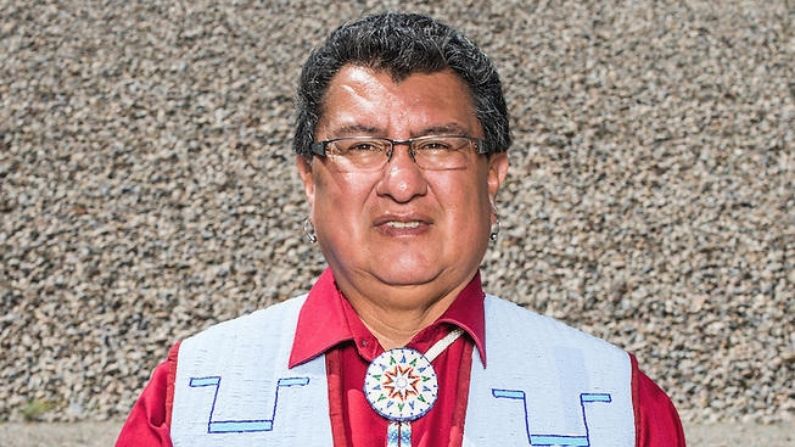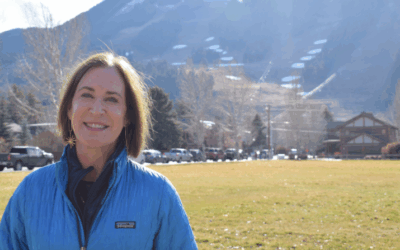The coronavirus pandemic has killed Native Americans at a faster rate than any other group in the U.S. Indigenous people have died at twice the rate of white Americans, but in the wake of that devastation, the centralized Indian Health Service has been far quicker than many state systems at getting COVID-19 vaccines into tribal members’ arms. Many tribes, including the Northern Arapaho and Eastern Shoshone of Wyoming, have been so successful that they’re now sharing extra vaccine doses with their non-Indigenous neighbors.
Lucas Brady Woods of KSJD Community Radio in Cortez, Colorado, interviewed Chairman of the Ute Mountain Ute tribe Manuel Heart about the community’s vaccination efforts. This story comes to KHOL through the Rocky Mountain Community Radio coalition.
Lucas Brady Woods: Manuel Heart is the chairman of the Ute Mountain Ute Tribal Council, which is made up of seven tribal members. The Ute Mountain Ute tribal lands cover regions of Montezuma and La Plata counties in Colorado and San Juan County in New Mexico. Thanks for joining us, Chairman Heart.
Manuel Heart: Good morning. Thank you for inviting me today.
Woods: The Ute Mountain Ute tribe has opened up a number of vaccine clinics for people in surrounding counties. Can you walk me through why there were extra vaccine doses?
Heart: The vaccines started coming in pretty slow, and it wasn’t meeting our needs. So I went to the state — I sit on the Colorado Commission of Indian Affairs. So, we started reaching out a little bit more. And as we did, we started receiving more vaccines. We wanted to target our tribal members, community members and our tribal employees. Once we reached a certain percentage, then we would open it up to spouses of employees and then eventually to the counties of Montezuma, San Juan, Utah and San Juan, New Mexico.
Woods: How would you distill your strategy for reopening the community?
Heart: We still want to be strategic about it based on science and based on data that we’ve collected. Just because Ute Mountain is 100% [vaccinated] doesn’t mean Montezuma County is or San Juan County is, or any of the four states that we live in. Also keep in mind that just because we’re at 100%, as adults, now we have to target our children. That’s the next area that we’re going to be concerned about.
Woods: So, since we talked about children, let’s dive into education. How has the pandemic affected education for Ute Mountain Ute tribal members, especially of grade level?
Heart: It’s really impacted us pretty hard here — the dilemma about going online or going to school, how far they were under academics. Online was really hard for them, because we don’t have a lot of internet here on the reservation. We have internet access for our departments and our enterprises, but they’re at maximum capacity right now. We really need to look at that as a priority. First off and foremost, for education. So, I think some of the students for this coming, or this current, school year are going to be behind one school year, or one semester, because of lack of infrastructure on fiber and access to broadband.
Woods: The Kwiyagat Academy is a new school that’s going to open in the fall in Towaoc, correct?
Heart: Yes.
Woods: Tell me why that’s exciting, and why it’s necessary for the community.
Heart: It’s called the Kwiyagat, which means bear, Academy School. There is a generation gap based on the past when the federal government tried to assimilate children, who would be our grandparents today, to start learning the English language and getting away from the tradition and culture. So we said, ‘Well, maybe we should rethink this. And maybe we should build a school on the reservation.’ That way we can have more of our tribal elders involved and others that know the different traditions and cultures in the language. So, we started looking into that over the years. And as we start to move forward with this, we have a deadline of April 12 to get 23 students enrolled. And once we get the students enrolled, and it’s for kindergarten and first grade, once we have the 23 students, then we will be opening up our doors this coming fall.
Woods: I mean, that’s incredible. Growing up, was there anybody in your family that was a particularly big influence on you?
Heart: My grandfather was. He’s the one that raised me. My grandfather was there for me all through my school years. Good and bad. And he helped me to understand a lot of tradition and culture. He spoke Ute to me all the time. I picked that up, and I speak fluent Ute today.
Woods: How did you end up as chairman of the Ute Mountain Ute tribe?
Heart: I’ve always advocated for a lot of things to help us move forward. And I think that’s why I’ve been successful in a sense in helping our membership, to help our tribe move forward.
Woods: Chairman Heart. Thank you so much for speaking with me today.
Heart: Have a good day, sir.






